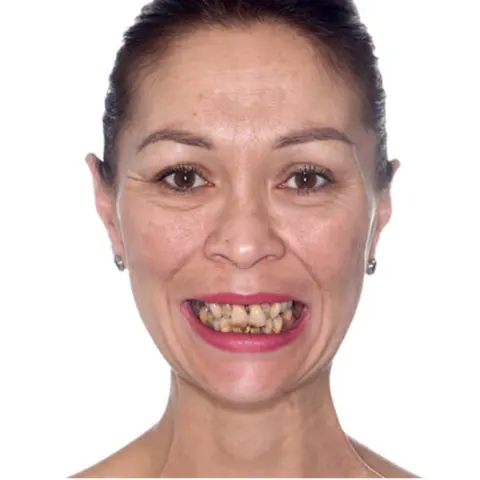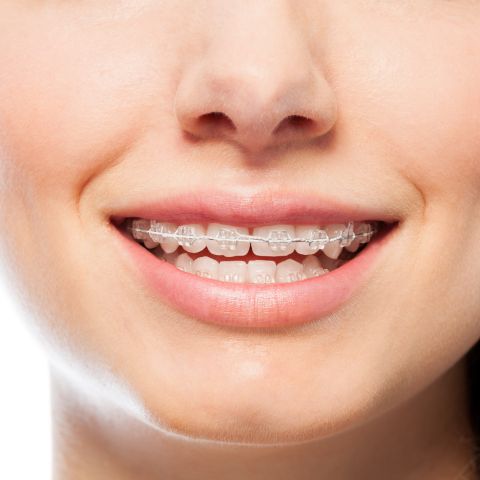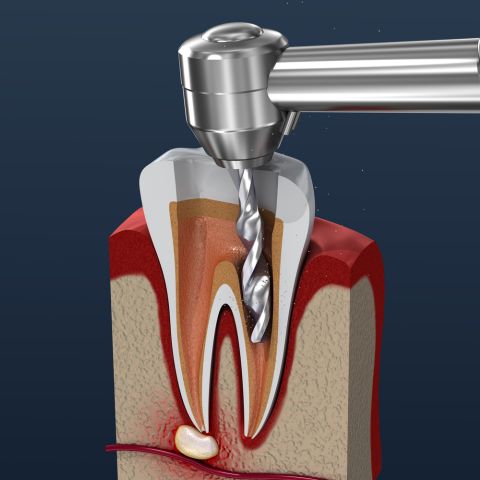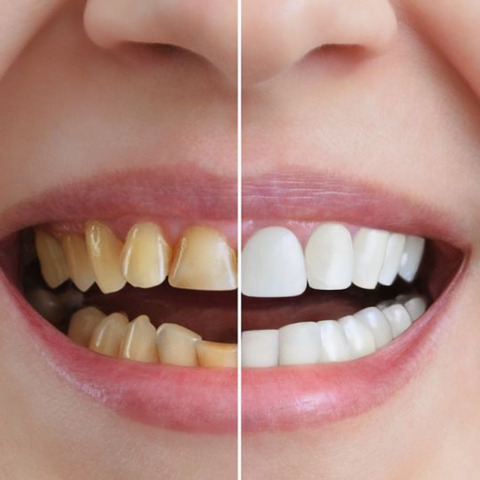

A crown sometimes known as a "cap", is a tooth-shaped made-to-measure restoration that covers and protects a broken decaying, or otherwise compromised tooth. Many materials are often used in making crowns, including porcelain, metal fused porcelain, ceramics, zirconia, or metal alloys such as gold or other base metals.
Pros of Dental Crowns:
- Durability: Dental crowns are durable and can last for many years, even decades, with proper care. They provide a permanent solution for damaged teeth.
- Aesthetic Enhancement: Dental crowns can significantly improve the appearance of your teeth. They can be tailored to match the shape and color of your natural teeth, providing a seamless look.
- Protection: A dental crown can protect a weak or damaged tooth from further deterioration. It covers the entire tooth, preventing decay and damage.
- Improved Function: Dental crowns can restore functionality to a damaged or decayed tooth, making it easier to chew and speak.
Cons of Dental Crowns:
- Invasive Procedure: The process of fitting a dental crown is more invasive than other dental procedures such as veneers or bonding. Some of the tooth structure needs to be removed for the crown to fit properly.
- Sensitivity: Some patients may experience sensitivity to hot and cold temperatures after the procedure. However, this usually subsides after a few weeks.
- Potential for Damage: While crowns are durable, they are not indestructible. They can crack or chip, especially if you grind your teeth or bite down on hard foods.
- Cost: Dental crowns can be costly, especially if you need more than one. However, the cost can be offset by the longevity and effectiveness of the treatment.
The types of dental crowns available in Turkey include porcelain-fused-to-metal (PFM), all-porcelain or all-ceramic, gold alloys, and base metal alloys. The best type of crown largely depends on the specific needs and requirements of the individual patient.
- Porcelain-Fused-to-Metal (PFM): These crowns offer a good balance between durability and aesthetics. They are made of a metal core covered with a layer of porcelain to give a natural tooth-like appearance.
- All-Porcelain or All-Ceramic: These crowns offer the best natural color match and are more suitable for people with metal allergies. They are typically used for front teeth due to their superior aesthetic qualities but may not be as strong as PFM or metal crowns.
- Gold Alloys: Gold alloy crowns are highly durable and resistant to wear and tear. They do not fracture or wear the teeth against which they bite. However, their metallic color is not as aesthetic as porcelain or ceramic.
- Base Metal Alloys: These crowns are highly resistant to corrosion and require the least amount of healthy tooth removal prior to fitting.
Dental crowns and veneers are both used to enhance the aesthetics and functionality of teeth, but they serve different purposes and have distinct characteristics. Dental crowns are primarily used to restore the shape, size, strength, and appearance of a tooth that is severely damaged, decayed, or has undergone a root canal treatment. They are tooth-shaped caps that cover the entire visible part of a tooth, from the gum line to the chewing surface.
Crowns can be made from various materials, including porcelain-fused-to-metal (PFM), all-porcelain/ceramic, gold alloy, base metal alloy, and zirconia. The process of placing a dental crown involves removing the damaged tooth structure, shaping the remaining tooth to accommodate the crown, and cementing the custom-made crown onto the prepared tooth. Dental crowns typically have a lifespan of 10-15 years or more, depending on the material used and the patient's oral hygiene habits.
On the other hand, veneers are mainly used for aesthetic purposes to improve the appearance of teeth that are discolored, chipped, misaligned, or unevenly spaced. They can also be used to correct minor shape and size issues. Veneers are thin shells that cover only the front surface of a tooth, leaving the rest of the tooth structure intact.
They are usually made of porcelain or composite resin materials. The procedure for placing a veneer involves removing a small amount of tooth enamel from the front surface of the tooth, taking an impression of the tooth, and bonding the custom-made veneer to the tooth using a strong adhesive. Like dental crowns, veneers can last 10-15 years or more, depending on the material and the patient's oral hygiene habits.
The dental crown procedure is typically performed over two visits to the dentist.
1. First Visit: Examination and Preparation:
The dentist will first examine the tooth to ensure that it can support a crown, then begin filing it down to prepare for the crown. Alternatively, if the tooth is severely damaged or broken, the dentist may need to fill it in to make it large enough to properly receive the crown. After the tooth is filed or filled to the proper shape, the dentist will take an impression of the tooth, as well as those surrounding it, and send this impression to a dental lab to create the crown. The dentist will then place a temporary crown over the tooth to protect it.
2. Second Visit: Placement of the Permanent Crown:
During the second visit, the dentist will remove the temporary crown and check the fit and color of the permanent crown. If everything is acceptable, a local anesthetic will be used to numb the tooth and the new crown is permanently cemented in place.
This process generally involves a wait time of a week or more between the two office visits for the crown to be created in a lab. However, some dental offices in Turkey have special technology to create and place crowns in one visit.
After a dental crown procedure, patients may experience some sensitivity, especially to hot and cold, in the tooth that has been treated. This is normal and usually subsides within a few days to a week. If the tooth that has been crowned still has a nerve in it, you may experience some heat and cold sensitivity. Your dentist may recommend that you brush your teeth with toothpaste designed for sensitive teeth to alleviate this.
You might also feel some discomfort or sensitivity in the gums around the tooth where the crown was placed, which can be relieved with over-the-counter pain relievers.
Once the crown is installed, it should feel comfortable and natural in your mouth. However, if you feel like your bite isn't correct, or if the crown feels too high or is causing discomfort, you should contact your dentist for an adjustment.
You will be able to return to your normal activities and oral hygiene routine almost immediately after the procedure. It is especially important to continue to floss around your crown to prevent excess plaque or collection of debris around the restoration.
Certain behaviors such as jaw clenching or bruxism should be avoided as it can damage the crown. Eating hard foods, ice, or candy can also compromise the adhesion of the crown or even damage the crown.
Dental crowns can typically last between 5 and 15 years, and some can last even longer with excellent care. The lifespan of a crown depends on the amount of wear and tear the crown is exposed to, your oral hygiene practices, and your personal mouth-related habits, such as grinding or clenching teeth, chewing ice, biting fingernails, and using your teeth to open the packaging.
To ensure the longevity of your dental crown, follow these care tips:
- Practice good oral hygiene: Brush your teeth at least twice a day, floss daily, and use mouthwash to kill bacteria and keep your mouth fresh. Focusing on the area around the dental crown can prevent plaque and decay buildup.
- Schedule regular dental checkups: During these visits, your dentist can check the condition of your crown and ensure it’s still in the best shape.
- Avoid hard foods and bad habits: Hard or sticky foods can break or damage a crown. Also, using your teeth as tools or biting your nails can harm your crown.
- Protect your teeth: If you grind or clench your teeth, consider wearing a mouthguard at night to protect your crown and your other teeth. If you play sports, a mouthguard can protect your teeth from injury.
Remember, just like natural teeth, crowns can become loose or fall out, so it's essential to take good care of it.
Turkey has become a popular destination for dental procedures due to its combination of highly skilled dentists, state-of-the-art dental clinics, and affordable prices. The lower cost of living and operational expenses in Turkey allows dental clinics to offer high-quality treatments at a fraction of the price compared to Western countries.
In terms of pricing, a dental crown in Turkey typically ranges from $100 to $300 USD. In contrast, in the UK, the cost ranges from $500 to $1,000 USD, and in the United States, it can be between $800 to $2,000 USD for a single crown. The significant difference in pricing, without compromising quality, makes Turkey an attractive option for those seeking dental crowns.
Choosing Elara Medical Tourism for your dental crown procedure in Turkey offers numerous advantages:
1. Expertise and Experience: We collaborate with highly skilled and experienced dental professionals who specialize in dental crown procedures. Our network of professionals ensures that you receive the best possible care and results.
2. Quality and Safety: We prioritize your safety and well-being. All the clinics and hospitals we partner with adhere to international standards of quality and safety, ensuring that you receive the highest level of care.
3. Personalized Service: We understand that each patient's needs and preferences are unique. Our team will work closely with you to create a customized treatment plan that addresses your specific requirements and expectations.
4. Transparent Pricing: We provide clear and transparent pricing for all our services, ensuring that there are no hidden costs. You can trust that you will receive high-quality care at an affordable price.
5. Comprehensive Support: From the moment you contact us, we are here to guide and support you throughout the entire process. We assist with travel arrangements, accommodation, transportation, and any other needs to ensure a seamless and stress-free medical tourism experience.
6. Cultural Comfort: Our team at Elara Medical Tourism understands the importance of feeling comfortable in a foreign country. We provide assistance in navigating language barriers and cultural differences, ensuring that your stay in Turkey is as enjoyable and comfortable as possible.
Choose Elara Medical Tourism for your dental crown procedure in Turkey to experience world-class healthcare, personalized service, and a smooth, worry-free medical journey.
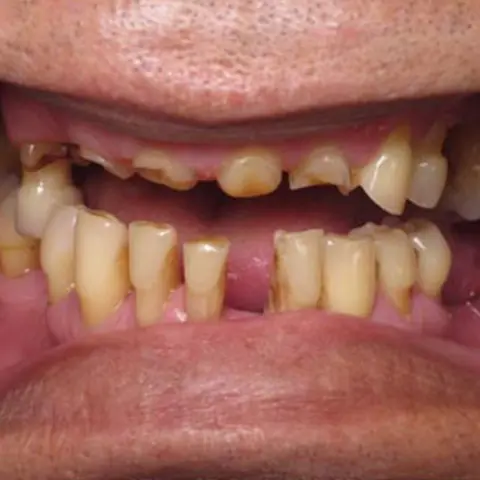
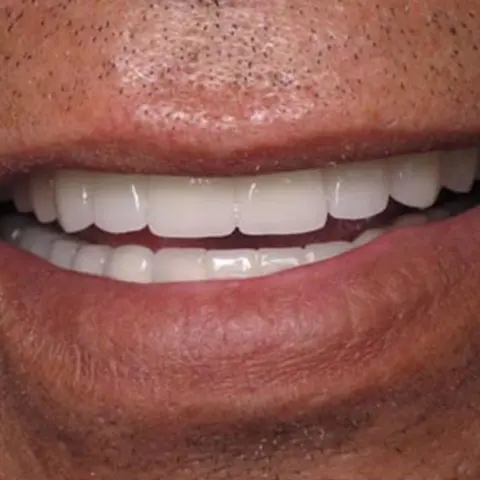
Restoring happy smile of a long time smoker with dental crowns
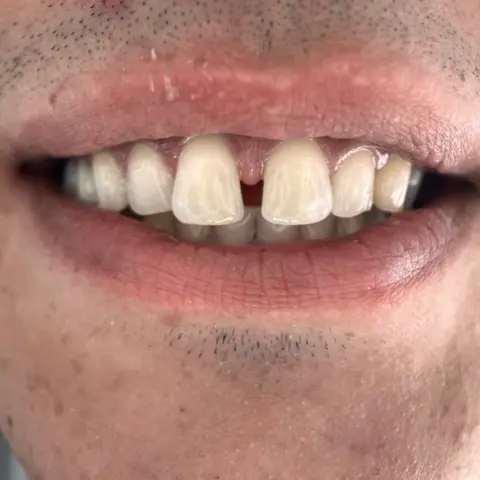
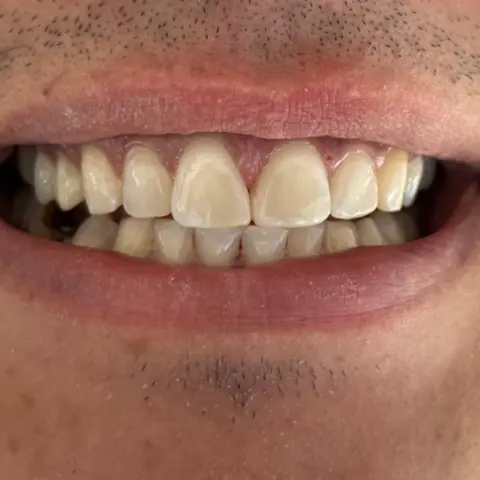
Filling space in tooth with Dental Crowns
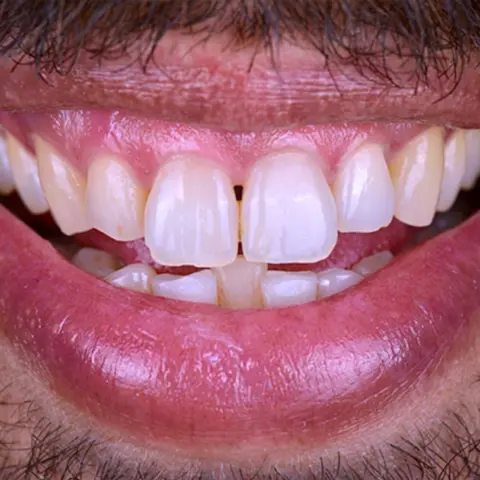
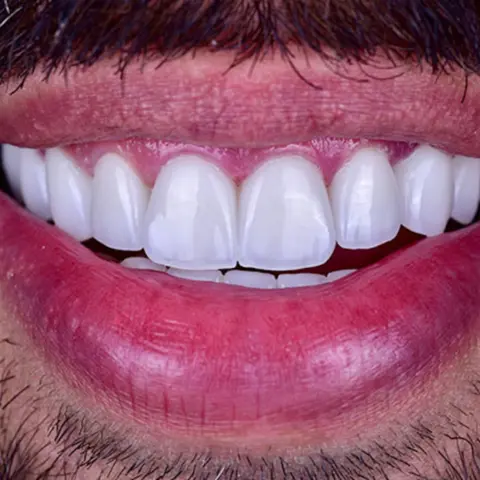
Realigning jaw with Dental Crowns
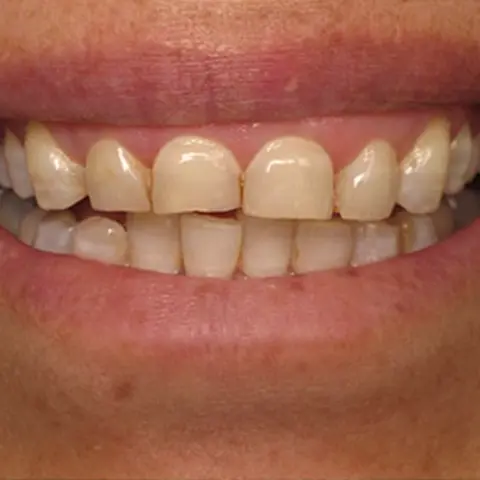
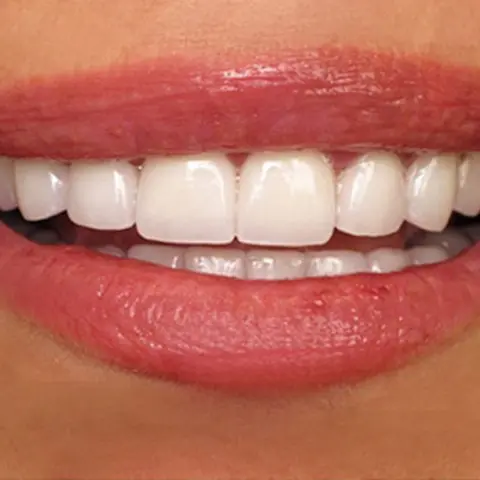
A new smile with Dental Crowns
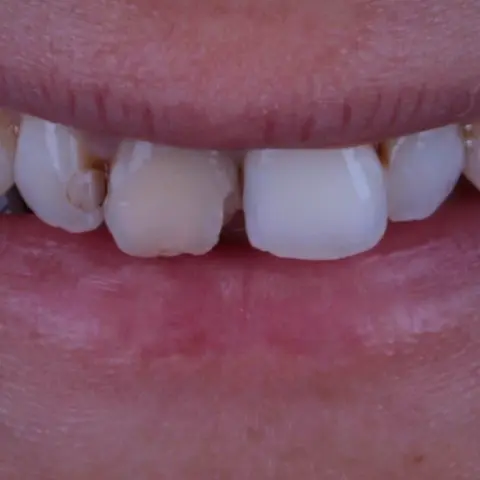
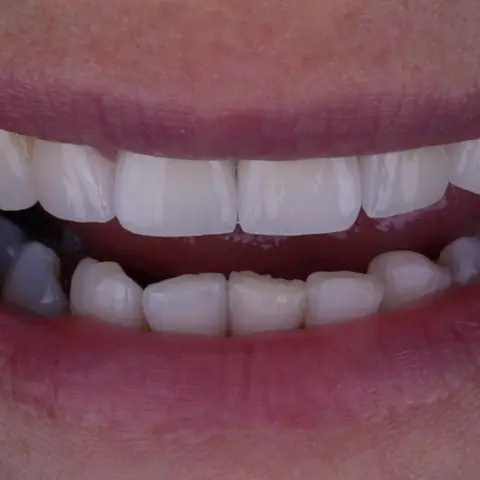
Remaking a smile with Dental Crown
